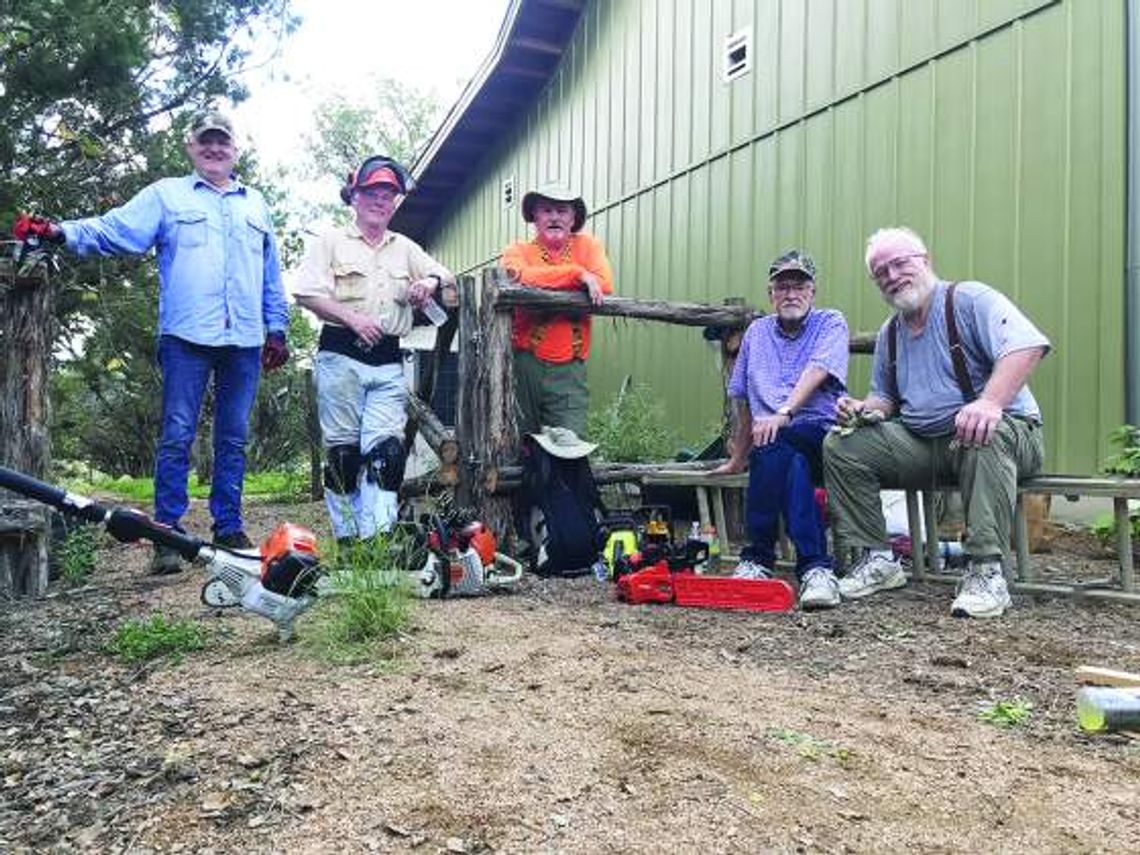In the Texas Hill Country, there is no shortage of beautiful land. Managing much of this land is a team effort.
Often those groups are composed of volunteers, nature clubs, nature organizations, school groups, community, corporate groups, etc.
When considering a volunteer opportunity, there should be a degree of travel that leads you to a place that looks different from where you started. Once you have made your journey, you should be welcomed by smiling faces with an educational experience that gives you an appreciation of your time beyond the manual labor. That volunteer opportunity might be just around the corner with the Cibolo Center for Conservation!
When it comes to land management, the task list comes in many forms. Some tasks require slight manicuring and a deft touch. Other duties may involve brush removal and tools made of iron. Every job is seasonal within the Cibolo’s Land Management Plan and can be considered “ongoing.”
The mapping of volunteer opportunities within the landscape is crucial and will change throughout the year, considering the photoperiod. Many volunteer opportunities involve restoring and caring for the Cibolo Creek riparian area, native prairies, woodlands and marsh habitats.
Currently, we are utilizing the regular services of a group of volunteers known as the Cibolo Sawyers. They work with the removal of large exotic invasive species, mainly Chinese Tallow Trees, China Berry Trees and Wax Leaf Ligustrum. Target trees are flagged during the leaf season (Ligustrum not included) and removed before seed dispersal.
Early fall flagging trees is necessary to prevent accidental cutting and impromptu twig identification. The Cibolo Sawyers schedule a fall and spring visit to monitor progress and manage ongoing project areas in association with their home nature club.
Nature clubs are doing more than just providing us with extra hands – they are an extension of the care and preservation of our lands in many ways. While volunteering with the Cibolo is not new. These are the volunteers we regularly need to help us manage our over 160-plus acres.
Cibolo Creek cleanup events are a fantastic way to explore the natural beauty of the Cibolo riparian area while removing urban debris from the nature scape. Scheduled year-round, cleanup events are guided so there is always an educational component concerning local flora, fauna and camaraderie with new friends. There’s also the lovely fall weather and the possibility of finding a deck chair, bowling balls, tractor tires, baseball bats, soccer balls, fishing poles and coconuts – to name some of the weird things we’ve removed from our land, which should serve as a reminder to please don’t pollute our place.
Studies have shown that experiential outdoor-oriented activities stimulate various portions of the brain that promote feelings of well-being. In addition to being outdoors, certain activities promote a sense of belonging through interaction with fellow volunteers.
The takeaways of volunteering are great, and you will also learn some valuable tips/tricks that you can implement at your homestead, not to mention some great laughter and smiles. As we move toward fall, we can look forward to the rustle of leaves and the arrival of the north wind. We know that the health of our community depends on the quality of our conversations. See you on the land!
Land notes to keep in mind:
• The Chinese Tallow tree’s fall color sequence is red, orange, then yellow, followed by seed dispersal. Wax Leaf Ligustrum will remain green throughout the year. China Berry and Tree of Heaven will drop all leaves, so prior flagging is critical!
• Work down the invasive species during the fall to reset your native species in the spring.
• Repurpose your downed limb load for your Chiminea, cooking or warming!
Remember that you can always consult with an expert at your local nursery or Native Plant Society chapter. The Cibolo provides year-round volunteer opportunities across its two campuses. No prior experience is required, and the use of power tools will be conducted under supervision by an expert. Learn more on Cibolo.org/volunteer.







Comment
Comments